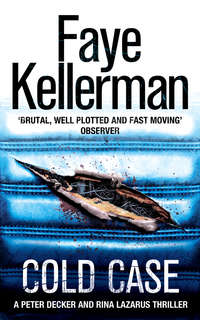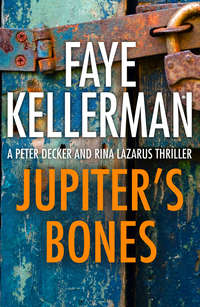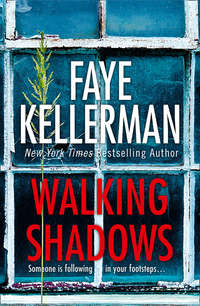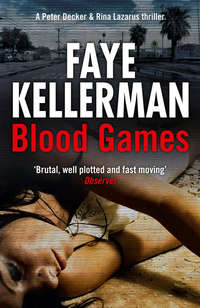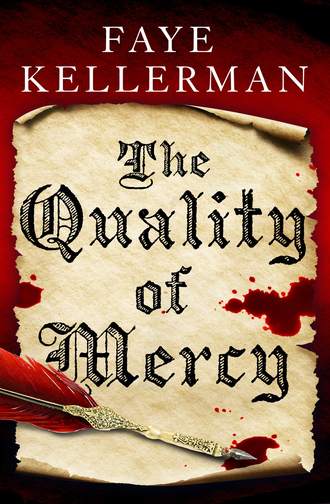
Полная версия
The Quality of Mercy
Thomas caught up with Miguel and glared at him.
“Do you want to gossip or sport,” he asked irritatedly.
“Shall I ignore the bereaved?” Miguel was just as irritated.
“Bereaved?” Dunstan whispered to his brother. “Never has she been more joyous.”
Rebecca waved to the men, and Miguel ran ahead to her. She stood, held out her arms, and they embraced.
“He has made amends?” she asked, but did not wait for the reply. “I knew he would. Father is a sheep in wolf’s clothing.” She mussed his hair. “And you’re continuing the intrigue?”
“Dunstan has told you his doubts about the mission?”
“No, Miguel,” Rebecca said. “I disclosed to him my doubts.”
“His words were your idea, then,” Miguel said.
She pulled away from him.
Miguel said, “Becca, I must continue the work of Raphael—”
“No!”
“We’re saving lives.”
“It isn’t enough that I mourn for Raphael?” she asked. “Must I mourn for you, also?”
“I’m cautious—”
“Your brother used caution. He’s dead.”
Thomas and Dunstan approached, greeting their cousin with a customary kiss.
“You’re upset,” Dunstan said to her.
“How astute,” she answered. “You couldn’t talk him out of this?”
“Miguel is stubborn,” Dunstan answered.
“You’ll not be happy until you die a martyr,” she said to Miguel.
“That’s not so.”
She leaned her face against Miguel’s chest and held him. “I’m so worried. We are all so vulnerable.”
“Nothing will happen to me—or you—or any of us,” Miguel insisted. He broke away from her grasp. “I must practice my swordplay, Becca. My skill is my accursed weakness. Pray, don’t worry about me.”
“Teach him well, Thomas,” she whispered to her cousin.
Thomas whispered he would, then he and Miguel left. Rebecca waited until the both of them were out of sight, then wrapped her cloak snugly around her body.
“The mission turns Miguel’s mind to marchpane,” she said to Dunstan. “He’s drunk from a single sip of success, but it’s not pride that motivates him. It’s acceptance by my father, by you as well, cousin. Raphael used to call Miguel the eternal puppy, so eager to please and trusting he is.”
“At seventeen I, too, was eager,” Dunstan said. “Life shall polish his senses.”
“If he lasts long enough to benefit from experience.” Her eyes hardened. “And age has nothing to do with idealism. I’m no older than he, yet I’m as cynical as an old man of forty. Cannot you stop him, Dunstan?”
“No.”
“Then may God bless and help him.”
“How do you feel, Becca?”
“I’ve been confined here for weeks,” she answered. “Much time I’ve spent in prayer, but it has provided me with little solace. Just lethargy. Grandmama says that idleness has made me slow-witted.”
“Perhaps she compares you to me,” Dunstan said.
Rebecca laughed. “Dear cousin, an intelligence of wit assumes a whit of intelligence. One must have the latter to have the former.”
Dunstan frowned.
“Idleness has not made you less clever,” he said. “But it has made you more vicious than ever.”
Rebecca cocked her head and pouted. Marry, she was lovely, Dunstan thought.
“Shall I take you to Cheapside?” he asked.
“Mayhap you mean to bed?”
Dunstan bit his lip to hold back a smile.
“If that be your desire.”
“Go home to your wife.”
Dunstan sat down and cradled his chin in the palms of his hands. He looked so troubled, Rebecca thought, but in a rather childish way. As if his mother had taken away his sweetmeats.
“What is it?” Rebecca asked.
Dunstan sighed. “Grace has been so unresponsive since she has foaled. I don’t understand it. I give her gifts, I’ve hired for her more servants than wait upon the King of Scotland. I’ve indulged her every whim.”
“You might consider giving her attention.”
“I’m very attentive.”
“Aye, to the scullery maid, the milkmaid, the chandleress—”
“I’m not a monk, Rebecca. Do not lecture me.”
She became silent at the tone of his voice.
“Come, cousin,” he said. “Let us take a ride to the country.”
She shook her head. It would be disastrous to fill him with false hopes. The sparks she’d once felt for him had died years ago. She’d been just a little girl, and Dunstan had been her porthole to the world. Things were different now. She was no longer dependent on him to teach her things. Still, Dunstan persisted in trying to revive the past.
“The country would do your nerves well,” he begged.
“I thank you, but no.”
“You’re a stubborn twit of a wench,” Dunstan said angrily.
“Or a wit of a wench,” she smirked.
He grabbed her. “Remember, it was I who broke you in.”
“I remember it well,” she said.
“Then why have you turned so cold to me?”
Not wanting another exhausting confrontation, she smiled and stroked his cheek.
“You look handsome, Dunstan.” She tugged the corners of his mustache. “The color red suits you well.”
“You taunt me, Becca.”
“Not at all.”
“Then bed me.”
“Impossible.” She straightened out his ruff.
“Why do you treat me as thus—the tongue of a kitten one moment, the bite of an asp the next?”
“Blame it on the stars.”
“You toy with my emotions.”
“Dunstan,” she answered, “listen to me. Your cap houses one head, your codpiece the other. Think with the proper one. I’ve grown into a marriageable woman now. You must stop your ridiculous flirting.”
“I love you.”
“Would your ardor remain hot if I wore the battle scars that decorate Grace’s belly?”
Slowly he released her from his grip. “I cannot stop thinking about you. You must marry before I do something … very foolish.”
“You mean I must become pregnant, fat, and complacent. Then I will no longer be desirable.”
Dunstan smiled sadly. “That is exactly what I mean.”
“At the least, you’re truthful, if not honest.” She pushed him away. “Go home to Grace. Perhaps she’s not the wildest between the sheets, but indeed she’s served you well.”
Rebuffed again, he stood, bowed, and doffed his hat, showing her the inside of his cap—a gesture of scorn. As he left, he turned to see her gathering almond blossoms in her skirt. Her black hair was loose and long, her ungloved hands so delicate and slender. He felt the sting and cursed what he once had, what he finally realized he had lost forever.
Chapter 9
Politics, politics, and more politics. It made Roderigo weary, and he almost wished himself a simple country doctor again. Putting down his quill, he reread the letter to Ferreira de Gama, admiring the strokes of his Italian hand, so rich with flourishes yet far easier to pen than the traditional secretary hand. Satisfied with the correspondence, he folded and sealed the letter, removed his spectacles and leaned back in his chair. Surrounded by solitude in his private closet, he tried to forget the discouraging words of his nephews. But they buzzed through the air like gnats.
What if Essex were to intercept their correspondence with Philip? What would it mean?
Disaster!
Blank failure from your mind, Roderigo told himself. Just use caution and worry not. There would always be naysayers. Let them say nay, he would say yea.
The fire needed to be stoked. Rather than call a servant, he got up and poked the logs himself. The embers erupted into flames, and the gust of heat warmed his stiff hands.
Roderigo regarded the hearth in his closet. The Great Hall was outdated, being warmed by only a central pit. It was time to mason a fireplace there. One that would hold a majestic mantel … a mantel carved from the finest walnut. And the hearth should be chiseled from Sicilian marble—deep green preferably, to match the view of the orchards from the leaded-glass windows. And a magnificent chimney puffing out big bellows of smoke so that all of London—and Essex—would know that the Great Hall of Dr. Roderigo Lopez was royally warmed, suitable for entertaining the most revered prince of state. He’d talk to Sarah. A dutiful wife, she’d arrange the details quickly. He had but to speak and Sarah would carry out his wishes.
Lopez heard a knock upon the door. He asked who it was and his daughter identified herself. He allowed her to enter.
Rebecca stood for a moment underneath the frame of the door. Roderigo was surprised to find her still dressed in black. He would have thought she would abandon the dark clothing as soon as her shiva—her first period of mourning—had finished.
Mourning. It had only intensified her beauty, and that worried Roderigo. She had become as jumpy as a kenneled hound, and God only knew what would happen when she was freed from her obligatory month of grieving. An appropriate suitor had to be found lest he find himself the grandfather of a bastard. In his mind, Miguel was still the preferred son-in-law, despite his … whatever it was. He couldn’t imagine marrying her off to anyone but kinsmen. Perhaps there existed an appropriate suitor in the Low Countries or the Levant. He’d speak at length with Solomon and Sarah. They would know who the available men were. Another detail to arrange. He sank down into a padded armchair and called to Rebecca.
“Come to me, daughter.”
Approaching with a coy smile, Rebecca took a soft velvet pillow and sat at her father’s feet, her overskirt and petticoat billowing over the floor. She curled up against his leg. He reached down and entangled his fingers in her thick, black hair, then stroked it as he would the fur of a lapdog.
“Has the Queen summoned you yet, Father?”
“You can answer your own question,” Roderigo said. “You seem to know much about my affairs.”
“You’re angry at me for telling Dunstan the words of Philip’s letters to you,” Rebecca said. “So be it. Punish me if you desire, but I did it out of love. I’m worried for Miguel’s safety. For yours as well. Essex is clever and vicious.”
Roderigo stroked his daughter’s cheek. He felt saddened by the burden that the mission had imposed upon her.
“Don’t worry about me, Becca. Worry instead about your lack of husband.”
“I need not a husband.”
“Bah.”
She said, “There’s none suitable who bids my calling.”
“Lord Holderoy?”
“You can’t be serious, Father. He’s too fat and too old. His seed is no doubt less than copious.”
“The Earl of Nottingham?”
“A pompous snot.”
“Marquis of Cumberland?”
“Father! He is a Papist!”
“He is also rich and mad for you, daughter.”
“I will not marry a Papist!”
“Aye, you truly are your father’s daughter,” Roderigo said. “Filthy swine are the Catholics. They burn relapsed conversos as readily as firewood. And the Protestants are no more gentle. Luther, who openly courted the Jews at first, became angered by their refusal to convert. The serpent recanted his praise and went on to blame all the ills of the Continent on the recalcitrant Semites. They all disgust me, the Gentiles. And yet we are completely dependent on their mercy. As much as I plot and plan, it all comes down to the good graces of a tolerant monarch. As of this moment I sit here powerless. I can do nothing until Her Grace beckons me to court.”
“Poor Father,” she cooed. “Chafing at the bit while the evil Essex schemes.”
Roderigo said, “I scold you for repeating my words, and still I talk too freely to you. Don’t mind my affairs.”
“But I care for you. As you care for me. That’s why you’ll not insist that I marry just for marriage’s sake. Besides, I’m still young—”
“Not so young anymore. Your mother had borne me three children afore she was twenty.”
“And the Lord took them all before their majority—God rest their souls. A young womb yields unripe fruit. Better to wait until the tree grows strong.”
“Bah,” he sneered once again. “Don’t prattle about unripe fruit. You desire freedom.”
“No,” Rebecca protested. “Only the proper bridegroom.”
“Which means no husband at all,” Roderigo said. “You’re true to your stars, my child. A Scorpio with the moon in Gemini—a fatal sting that’s mercurial in nature.”
“Nonsense,” Rebecca said, giving him a playful slap.
“A bellyful of children should calm you down.”
“Again nonsense. A bellyful of children will only make me fat and contemptuous to my husband. You wish not that for me, do you, Father?”
“I wish you to be happy. And a gentlewoman cannot be happy without a husband.”
“But—”
“What would you do without a husband?” Roderigo asked.
“I’d have much to do just being your daughter.”
Roderigo smiled. “That is not a sufficient position in life.”
“It is all the position I need.”
“You need to be a gentleman’s wife.”
“I should like to continue to help you with your patients. Spend valuable time ministering to the ill. Haven’t you said that I am your extra set of hands—skilled hands?”
Roderigo kissed those hands. “I cannot reason with you on this issue of marriage. You distract me with silly talk about your hands. If you force me to become a tyrant, I will, Becca. You will marry when I see fit, and now I’ll hear nothing more to the contrary.”
Rebecca said nothing. Silence was her best weapon against her father’s obstinacy. It had worked in the past, and it seemed to be working now. Roderigo’s face softened. He asked her how she spent the last days of her second period of mourning.
Rebecca replied, “The hours are long when one is weighted down with boredom.”
“I asked you not whether you spent your hours contentedly,” Roderigo replied. “Answer my question.”
“I sew and read.”
“And do you do what your mother requests?”
Rebecca paused a moment, puzzled. “I do all that Mother asks of me.”
“And you’ve almost completed your tasks?”
Rebecca’s face lit up with understanding.
“Marry, you mean the forged papers—”
“Quiet,” Roderigo interrupted. “Keep your voice low.”
Rebecca whispered, “I’ve finished one set and am busy penning another.”
Roderigo smiled and stroked her cheek. “Well, then. And your music?”
Rebecca replied that Grandmama said she wasn’t allowed to play music until the thirty days of her second period of mourning were over. She told her father she only had six days left, trying to sound casual, but the relief in her voice was too evident. Her father had noticed it and arched his eyebrows in disapproval.
She added, “Aye, Father, a month of mourning officially for Raphael, but for years he will live in the heart.”
Rebecca sensed that she had said the wrong thing. Her father tensed.
“Raphael was a wonderful man,” he said.
“Aye.”
“He deserves a true mourning, not simply an official one.”
“I understand,” Rebecca answered.
“I think not.” Roderigo pushed her away. “Leave now.”
“Father, I’ve always been a dutiful daughter to you,” Rebecca said. “I would have been a dutiful wife to Raphael. But I was not passionately in love with him.”
“You would have learned to love him.”
“I’m not denying that,” Rebecca said. “Some note in my voice has offended you. I pray you to pardon me.”
“I don’t want apologies, Becca. I simply want you to wed for your own sake. Find a suitable man that pleases you. Because if no man is to your liking, you’ll simply have to marry one you dislike.”
“Father—”
“No more said about it!”
Roderigo curled the tip of his beard with his finger, cleared his throat, then said, “I’ve received word that Uncle Solomon has safely arrived in Turkey.”
“Thanks be to God,” Rebecca answered quietly.
He sighed and tried again. “Did I tell you about the letter that your brother sent me?”
“Two times. Ben is well and is enjoying Venice. He eats a great deal—less meat, more bread.”
“Did I tell you about their eating geegaw—a fork they call it. They spear their food—”
“Aye, you told me.”
“Ben said they eat using these toys for fingers because their hands aren’t clean.” Roderigo laughed.
Rebecca was not amused. “Shall I go now?”
“No. Your beauty warms my bones,” said Roderigo. “Stay. And do not sulk.”
“As you wish.”
“Stubborn girl,” Roderigo muttered.
Before Rebecca could reply, Martino walked in the room, panting with excitement. A gentleman wearing royal livery had arrived with a message to deliver to Dr. Lopez. Rebecca stood up and looked at her father. His face held an expression of concern mixed with excitement. At last. Some word from the Queen. It was, of course, a double-edged sword. Father had been summoned, but for what purpose? Rebecca’s heart started hammering, her head suddenly felt light. Please God, let all be well.
Roderigo commanded Martino, “Let him in. But give me some minutes to make myself acceptable.” To Rebecca he said, “Dress me quickly.”
Immediately she began to truss his points, lacing firmly the ribbons of his gown.
“Where are your shoes?” she asked.
“My boots are—”
“Nay, Father, not your boots. Your velvet shoes—the ones topped with roses.”
“Need I my velvet shoes?”
“Father!”
“They are in my bedchamber.”
“I will retrieve them along with your garters. And a new ruff as well. The one you wear sags pathetically under the weight of your beard.”
She was off. He was elated. The Queen had sent for him. Was Essex out of favor? Did she desire to use his secret contact in Spain? Did she need news from Solomon Aben Ayesh’s well-connected band of Levantine spies? Did she simply desire his counsel?
Suddenly he stopped and felt a cold shiver run through his body.
Could the Queen be actually ill?
Perish the thought! If her life ended, so would go all his power.
He picked up his bag and checked its contents. A few elixirs, a few powders. He was lacking the necessary medicines—the purges, leeches, potions, poultices. Thank God Rebecca and Sarah were so meticulous in stocking the stillroom.
Rebecca was back with a new ruff and his shoes. Quickly she placed multiple layers of lace and wire around his neck. Her father seemed calm, he wasn’t trembling or breathing hard, but his color seemed unusually flushed. Her own fingers were stiff. God give him strength, give her strength. Let this be a portent of good things to come.
“My medicine bag is nearly empty,” Roderigo told her.
“Tell me what you need.”
Roderigo listed the medicines: a jug of leeches, trefoil, thistle, walnut shells, cheese mold, fungus on rye—women of that age are known to have bleeding of the privates.
“Perhaps a sprig or two of parsley mixed with dragon water,” Rebecca suggested. “The condition of Her Grace’s teeth is quite poor.”
“Aye, parsley with water, and dried mint as well. And my special purge.”
“Done,” said Rebecca. “Shall I ask Martino to show in the messenger?”
“Aye … wait.”
Rebecca stopped.
“Am I presentable?” Roderigo asked.
“More than presentable, Father. Comely.”
Roderigo smiled and blew her a kiss as she left.
The messenger entered—a young man wearing the royal arms. He was just a boy, Roderigo thought, with hardly more than fuzz for a beard. Yet Roderigo quaked before him as if he were the Queen herself.
“Does Her Grace find herself in good health, sir?” Roderigo asked.
“I know not,” the gentleman answered.
“Come, sir,” Roderigo insisted. “Surely you were informed—”
“I was told to call you to court,” the boy said. “One does not inquire about the Queen’s business if one wishes to keep his head.”
Roderigo swallowed dryly.
“I shall prepare to leave at once.”
“A steed shall be waiting for you.” The messenger turned on his heels and left.
Revolting little roach, Roderigo thought. Unbecoming for a Queen to use such young rats as messengers. The little worm had a voice as cold as snow. It had sent a shiver through Roderigo’s spine. He looked up and saw Rebecca carrying an armful of vials.
“Come, daughter,” he said. “Tarry not. Place the medicines in my bag.”
She did as instructed, then looped an amulet around his neck. This one was arsenic paste sewed in dog skin, she explained.
“It will guard you against Black Death should the Queen be inflicted.” She pulled out a white crystal pebble from a jug. “Open up.”
Roderigo stared at the crystal. His mother-in-law had always insisted that the salts protected better than any charm the “wisemen” wore. Its taste was bitter, though not as bitter as the plague, Roderigo thought. He’d treated many patients steeped in Black Death, and not once had he or a member of his family been cursed with the disease. The hag might be a wretched old thing, but her potions were strong and effective. There were already mutterings that the false Protestants were not only secret Jews, but agents of Satan as well. How else could they circumvent the ubiquitous plague?
Marry, Roderigo thought, let them mutter. I shall live. He plucked the salt out of Rebecca’s hand and swallowed it.
“I shall take one also,” Rebecca announced.
“For what purpose?” Roderigo asked.
“Oh Father,” she blurted out. “Let me come to court.”
“Impossible,” Roderigo answered, not unkindly.
“The Queen was very fond of me,” Rebecca reminded him. “She brought me comfits and jellied quince. She loved my singing. My virginal playing made her weep.”
“Another time, Becca,” he said. “Once my favor has been firmly restored in her eyes.”
“If she is ill, I can assist you. I’ve come with you diverse times to visit the ill at St. Bartholomew’s.”
“This is the Queen.”
“How often did I stand by your side when Lord Leicester was ill?”
“He was not the Queen.”
“Her body is still human. If she is ill, I can help—”
“Go away, daughter. I have no time for your foolishness.”
Rebecca knew she should respect his wishes, but the last twenty-four days had been so confining. She envied her brother, off in Venice, her cousins gallivanting about. Only she and Uncle Hector had shown any respect for Raphael. True, she had been his betrothed, but it didn’t seem fair that only she should be cloistered. Rebecca argued,
“Had you not told me I should have been born a man so I could have practiced your chosen profession?”
“But you’re not a man.” Roderigo shook his head. “Aye, not a man at all.”
“I’m better equipped than Ben,” Rebecca said.
Roderigo glared at his daughter, angry at being confronted with the truth. Ben was an open wound in Roderigo’s heart. A wonderful boy, kind and good-hearted, but not as clever as Roderigo had wished. A curse to have a quick-witted daughter and a dull-witted son.
“Even if I would have permitted you to accompany me under ordinary circumstances, I would not allow it now,” he said sternly. “You’re in mourning, Rebecca.”
“I pray you, Father.” She sunk down on her knees and grabbed his hands, kissing his jeweled fingers. “I must leave here. I feel as if I’m being enveloped by the blackness I wear. I must escape or I’ll go mad. I beg of you.”
Roderigo withdrew his hands and said, “Your playacting may have its desired effects on young hearts, Becca, but my ears are deaf to your antics.”
Rebecca’s despair looked honest. Roderigo helped her to her feet and kissed her cheek. He said, “The Queen may have summoned me for reasons other than illness, little one. There is no place for women in politics.”
“Then what is the Queen? A bear? A goose? Aye, she must be a dog because oft you call her a bitch—”
Roderigo slapped her across the face. “Your tongue needs a knotting.”
The slap was a light one—a warning that she’d gone too far. But she remained undeterred. “The Queen’s a woman. Does she not involve herself in politics?”




